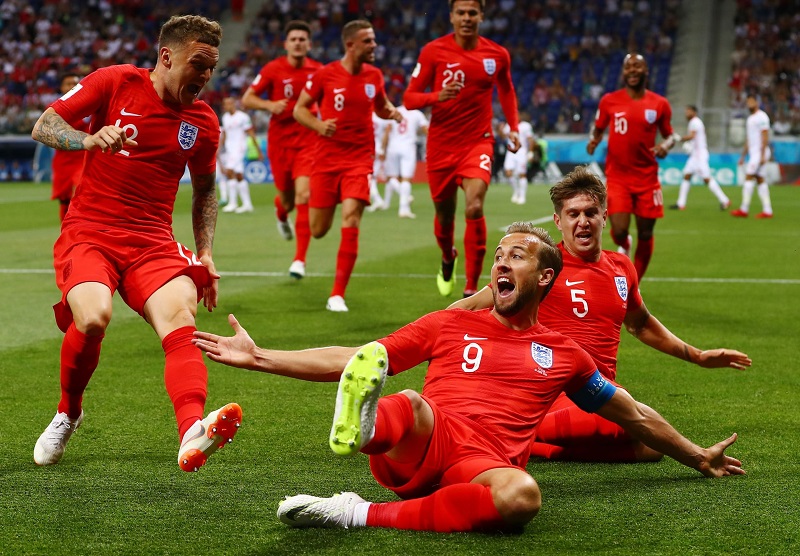
England coach Steve Holland believes Gareth Southgate is showing the same key qualities he saw in the likes of Jose Mourinho, Rafael Benitez and Antonio Conte at Chelsea.
Holland worked with the London club’s first team from 2011 before joining Southgate, and England, in 2016.
“I think with Gareth, he ticks so many of the boxes that the best that I’ve worked with tick,” Holland said.
“Does he understand man-management and getting the best out of players? Yes. Does he understand the value of giving staff ownership and responsibility? Yes absolutely.
“Does he have experience of international football at the highest level? Yes.
“He has some outstanding qualities and I’ve really seen him grow into the role.”
England play Panama on Sunday, looking to build on an encouraging, albeit last-gasp, opening win over Tunisia, but with morale high after Harry Kane’s double in Volgograd.
The mood was different 18 months ago, when Southgate took over a team rattled by the tumultuous sacking of Sam Allardyce and still smarting from defeat to Iceland at Euro 2016.
“I think Gareth recognised early on that it wasn’t a time for revolution,” Holland said.
Instead, they began rebooting England’s young squad and scouting their potential opponents, starting at the Confederations Cup in Russia last year.
“We spent a lot of time on a plane but it really gave us the opportunity to speak about what we’d learned,” Holland said.
“We tried to envisage how our team would look in those kinds of fixtures and we made some decisions. One of those was a back three.
“That decision was with and without the ball. We felt we would be better with and without the ball with a back three. We had dinner in Sochi and that was more or less where it was named.”
– History lessons –
Southgate has admitted his own preferences are informed by the England teams he played with, in particular the one that reached the semi-finals at Euro ’96 under Terry Venables.
“We looked at Terry Venables, the Euro 96 team, with Steve McManaman and Darren Anderton as wing-backs and Gary Neville in a back three, the balance of the midfield,” Holland said.
“Even at Italia ’90 going back to Bobby Robson, who started with one way of playing then went to a back three.”
Kieran Trippier and Ashley Young filled the wide positions against Tunisia, with Jesse Lingard and Dele Alli playing in front of Jordan Henderson in midfield. Raheem Sterling supported Kane up front.
“We felt three rather than two in the midfield, given the profile of players we have, brings in a Lingard or an Alli,” Holland said.
“Also, we have good forwards. If we play 4-3-3 or 4-2-1-3 we can only play one striker. If we play two, we can get two forwards on the pitch.”
There is no room for complacency. England are in a strong position to progress from Group G but their last game against Belgium will offer a truer gauge of their standing.
If they qualify, they will be pursuing only their seventh victory in the knock-out stages of a major tournament since 1966.
The win over Tunisia offered cause for optimism, however, not least because if Lingard, Sterling and John Stones had converted early chances, it would have been far more comfortable.
“With finishing, it’s practice,” Holland said. “It’s psychological, it’s about pushing the players to be match-winners but it is also a process. It might just take the time that it takes.
“If you imagine these guys in a couple of years, and I hope I’m still around then, once they’ve become more seasoned at this level, that could be really exciting. It already is now.” Agence France-Presse

































